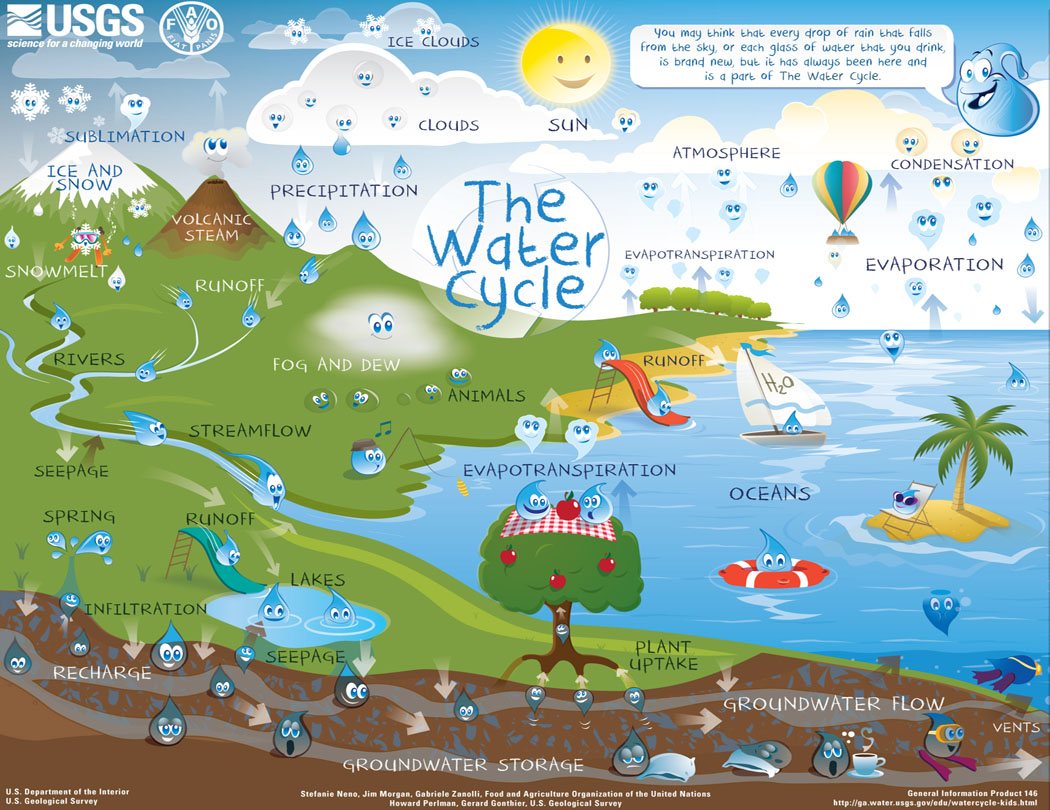 |
| Source: USGS |
Precipitation comes back onto the earth surface and ocean. The precipitation on earth separates into many parts. Some is intercepted by the trees (1), infiltrate into the ground(2), and runoff into catchment(3).
(1): The interception: the tree obsorbs the water, and it will uptake into atmoshpere also known as evapotranspriration.
(2) The infiltration: When the water infiltrate some amount is stored underground (ground water) and some part will join the stream flow.
(3) Runoff: Water flow into the stream directly join with base flow and another part from ground water. After that water will evaporate into atmosphere again.
All the process endlessly takes place and it is call water cycle. Water cycle is the great nature phnomena which is keep the water balance on the planet. All the amount of water remain constant, yet it change the phase or condtion to gas, liquid, solid or also from fresh to salin water.






